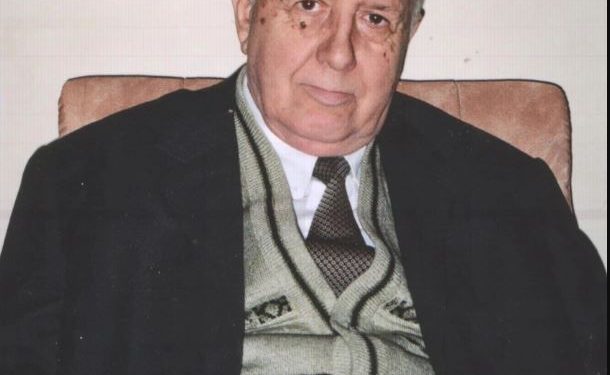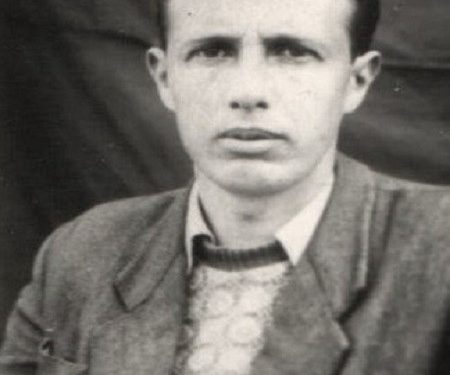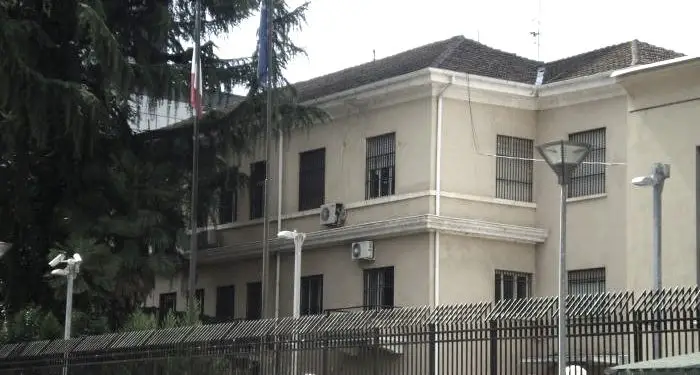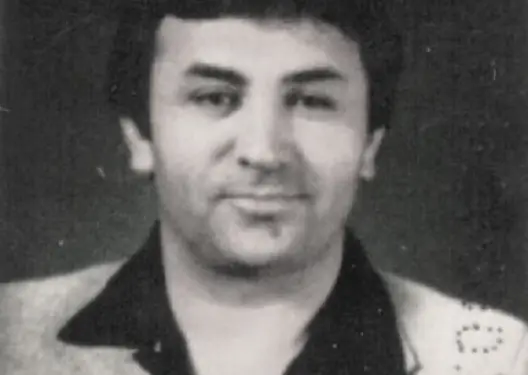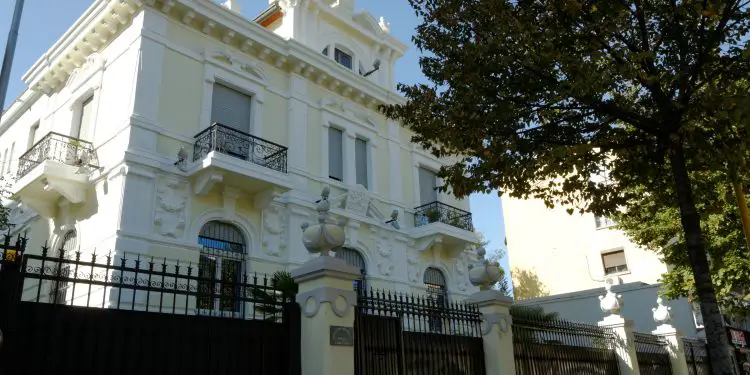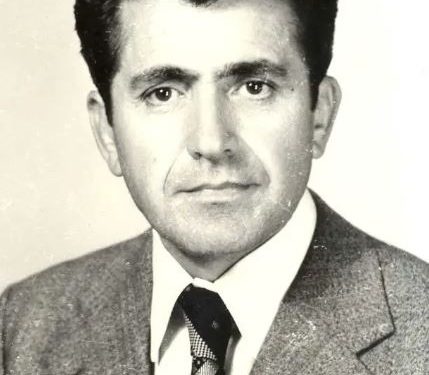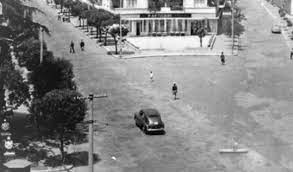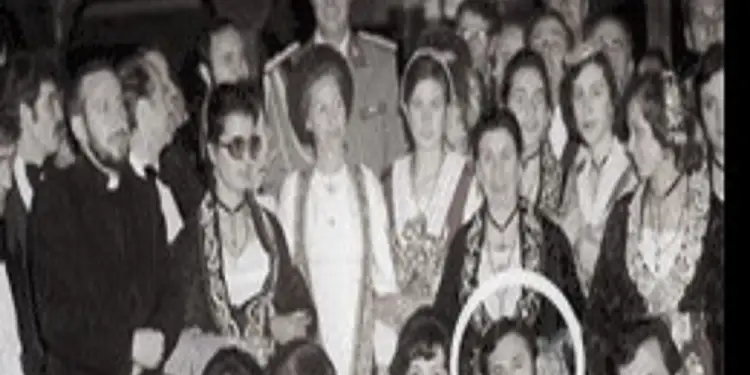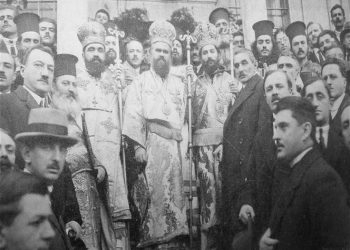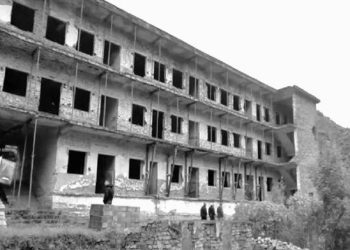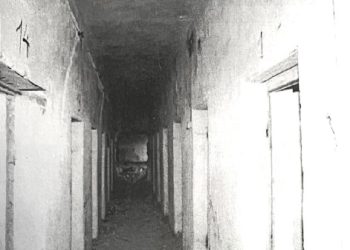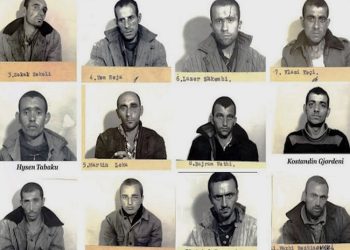By Robert Kostaq Cipo
The third part
Memorie.al / Linda in Korçë on Tuesday, September 16, 1930, at 10 o’clock in the morning. My parents were, Kostaq Cipo, son of Simon Cipo and Agnia (Juvani) Cipo, and Margarita (Papajani) Cipo, housewife, daughter of Doctor Filip Papajani and Angjeliqì (Kostantinescu) Papajani, housewife. When I was born, my father was a professor of Albanian language and literature as well as other literatures, except for French, at the Albanian-French National Lyceum in Korça, while Dr. Filip Papajani was the only doctor in the Pogradec district until the liberation of Albania, a patriot of the Independence period, writer and poet also mentioned in the Albanian Encyclopedic Dictionary.
Continues from last issue
With the inauguration of the Institute of Hygiene and Epidemiology, the laboratory where I worked moved next to this Institute, somewhere beyond the Kinostudio. Since I had finished the course for microbiologist, I was assigned to the production of vaccines, under the guidance of the very conscientious Dr. Eduard Shehut, who specialized in China. I continued there for a couple of years. I want to note that, since I was working at ‘Gama Globulina’, a chemist by the name of Vasil Thanasi came to work near our department, with whom we became very close friends. When he found out that I knew foreign languages, Italian and French, he explained to me that his brother, Lefter Thanasi, was the deputy director of the Service Office of the Diplomatic Corps and had proposed to his brother that if they had any vacancies, I used to depend on this Service.
At the same time, Perlat Çaushi, a former schoolmate of his brother and a diplomat and employee at the Ministry of Foreign Affairs, is also interested in a job near an embassy. In the meantime, since the secretary and translator of the Hygiene Institute had retired, I was appointed to this position. There I had the Library of the Institute, as well as I did the translations from the magazine articles or books of the World Health Organization, which came to this Institute.
After two years in this new position, Lefter Thanasi came one day and informed me that they had taken into account my ability and that they had appointed me to start working at the Cuban embassy with the Italian language. In this embassy, the Spanish language was used, but the Cubans themselves had started an intensive Italian language course and wanted the translations of the press to be done in Italian. I asked him for two days to think and I go and meet Perlat, a fellow diplomat in the Ministry of Foreign Affairs, married to Eli, the daughter of Sali Mborje, with whom we lived in the same building, and I get his opinion on how to act, because I had heard that those who worked in the Embassy must necessarily be spies of the Security.
He laughed and told me that; not all those who work there must be Insurance agents. In each embassy, there is only one person who performs this task. So you go, do the job honestly, get the salary you need and don’t worry. So in July 1976, I moved under the authority of the Cuban embassy, with headquarters at the beginning of “Durres Street”, where the Vatican embassy is located today. I had a very well-equipped office, with furniture, with a typewriter (in that period there was no computer yet), I also had the embassy’s library, with a very large amount of books (translations into Spanish of world literature). These books, the Cuban publishing houses, were obliged by the state to send three copies to every Cuban embassy abroad. Usually, one copy was taken by the Chargé d’Affaires (the Embassy never had an Ambassador), while the other two were kept in the library.
After I learned Spanish, I started getting a copy of them myself. For five years in a row, opposite my desk, there was a portrait of the internationalist fighter, Ernesto Che Gurvara, hanging on the wall. There I read about his life, I found out that he was Argentine and that he had joined the revolutionary groups in Cuba. Subsequently, after Castro’s victory, he was Minister of Industry and visited Albania, meeting Mehmet Shehu, with whom the conversation was held in Spanish. On the other hand, since he did not agree with Khrushchev’s policy regarding the proletarian revolution, he broke away and went with a group of revolutionaries to start the movement in Bolivia. There he gets into a fight with local troops and is injured. The person who was assigned to guard him receives instructions and kills him, cutting off both of his hands and presenting them as evidence of the crime committed.
At the Cuban embassy, since two years passed and the head of the embassy had to be changed, I was assigned the task of starting to learn Spanish. I entered this work with difficulty at first, but since it was similar to Italian and its grammatical rules, after a very short period, I got the hang of it. I started accompanying as Fr translators from Spanish, the heads of the embassy, the Charge d’Affaires and the First Secretary, in all official meetings. I got so good at Spanish that I started to translate simultaneously, from Albanian to Spanish and vice versa, both in official talks and in talks on trade agreements, which often lasted until after midnight. I also participated in official lunches and dinners, always as a translator, and I was often forced to leave the table without putting anything in my mouth, as I was always talking. But after the departure of the guests, I went to the embassy’s kitchen and cooked for seven pairs of pleasure.
My task was to translate the main articles of the “Voice of the People” newspaper every day. I performed this task both at the Cuban and Italian embassies. I also accompanied, as a translator, the employees of these embassies in the meetings they had at the Ministry of Foreign Affairs, the Ministry of Foreign Trade, the Service Office of the Diplomatic Corps, and the Office for Cultural Relations with the Foreign World, the Bank, etc. There were times when I accompanied embassy employees on tourist tours around Albania. With the Cubans, I have been to Pogradec, Korçë, Fier, Lushnje, Saranda, Shkodër and, from these visits, I save the photographs taken in Pogradec. I remember that during the visit to Korça, we were proposed to visit the house museum of the painter Vangjush Mio. Even today, I remember that house-Muzé, because it left an unforgettable impression on me. While with the Italians, as far as I remember, I was in; Saranda, Butrint, Apolloni, Pogradec, Vlora, etc. From the visit to Saranda, save a photo from the amphitheater of Butrint.
Now I’m remembering that from 1981 or 1982, Ambassador Gentile was interested in carrying out some “come and go” walks on the Tirana-Fier road. These trips, carried out only with the Albanian driver, without being accompanied by anyone else, were carried out only every Saturday. But after the last trip, these were discontinued. But on the following Tuesday, it was announced that the entry into Albania, with the intention of killing Enver Hoxha, was thwarted by the saboteur Xhevdet Mustafa. It was said there that everything was planned, to be carried out with the arrival of the group of saboteurs, on Saturday. It was said that the Albanian State Security was aware of this, as well as Ambassador Gentile, who came out every Saturday to see them when they came. Someone added to my mind that there was a possibility that Ambassador Gentile went out every Saturday to wait for the arrival of Xhevdet Mustafa, to take him with him in his car, either by chance or as a threat, to bring him without obstacles to Tirana. When I asked the driver, he told me that; he had always taken the ambassador to the turn of the road from Lushnja to Fier and there we would return to Tirana. “Last Saturday,” said the driver, “we saw one of those saboteurs who was caught and brought before the police.” When he saw that the much-awaited saboteur had been caught, he immediately ordered me to return to Tirana”.
In the Italian embassy, I was present at the entry of the Popa family (an event about which I wrote separately) in 1985, as well as at the influx of refugees seeking to go to Italy in July 1990. I also remember that in 1984, the Italian government returned the head of Dea of Butrint to Albania. The embassy, for two days, kept Dea’s head in its headquarters, on “Elbasan Street” (today the American Embassy) and there I was photographed with Dea’s head, before it was officially handed over to the National Museum (also from this activity, I have a photograph in the National Museum). In the Italian embassy, I changed four ambassadors, starting with; Tozzolin, Gentilen (who stayed 7 years), De Andreis and finally, Cardilin. I retired on May 1, 1991.
In 1992, a group of 5 armed people blocked the building where I live, allegedly to steal the apartment I have on the fifth floor, and when they saw that I had discovered them, they did not hesitate to shoot me with a revolver, from a distance of 4-5 meters, injuring my legs and body, but the wounds were not so serious and after a few months, I recovered. But less than a year later, as a result of this event, I suffered a “cerebral ischemia”, which forced me to stay in bed for a certain period, so that all my activities, after retirement, did not succeed.
During the period that Francesco Gentile was ambassador, he came to perform the functions of the First Secretary, Silvestro Scimonelli, with whom we established a close association, within the permissible limits. After I had retired, he returned to Albania again, with a delegation sent from Rome, for a check-up at the Italian embassy in Tirana and asked to pay me a visit at home. This was a friendly visit and the discussions at my house lasted for about 3 hours, expressing my thoughts on the behavior of Ambassador Cardili (whom he was a very good friend) from the Capadaiu.
We disagreed on many points. Apparently, he must have told Cardil my thoughts (this is my opinion), and that’s why after the commission left, my injury happened, at the door of the house, (but the goal was to kill me). This is my opinion, which I can neither prove nor disprove.
Ambassador Cardili had asked the Albanian government of Leka Meks to assign bodyguards to protect him. And it happened that those who wounded me shot with a ‘TT’ revolver that was used by the Security forces, but which was never found, according to those who wounded me; declared that “they had sold the revolver to a villager, whom they did not know” and with them before, they had bought another revolver, ordinary (very strange). The people who committed the assassination against me were arrested only two weeks after the assassination and only one of them was kept in prison. Thus, my conclusion is that those who killed me were provided with the weapon by Cardil’s bodyguard and after the assassination, they returned it to the owner.
I forgot to say that, although I had retired, telephone conversations with the Italian staff (diplomats) of the embassy were daily. But from the morning of the day when the assassination attempt was planned to be carried out against me, the Italian staff, by order of Cardil, was strictly forbidden to have any contact with me, and this continued for about two years, when all the staff of the embassy, completed the period of service and was replaced by other persons, who were unknown to me. Even the person who injured me was kept in custody for two more years and was released by the judge’s decision. But a few days after he was released, from the news on television, we heard that he had committed another crime, near Shkodra. But here comes the question; why did Cardili have to ask for my disappearance?
I want to clarify that, with the change of the political system in Albania, people’s contacts with the Italian embassy also changed. Almost every day, people came to see the ambassador about various problems, and I had to be there to do the translations. It occurs to me that on one of these days, a person appeared at Cardili’s and told him about his problem, that sometime around 1942, his grandfather had deposited a very large amount at the “Banco di Napoli” Branch in Tirana gold coins. Since after the liberation, in 1944, the communist government came into power and began seizing the assets of merchants, the grandfather suffered persecution but he did not declare where he had hidden this amount of money.
But now he wanted to get a visa to go to Naples, to the Bank of that city, to see the possibility of withdrawing the deposited money. Ambassador Cardili asked him to present the documents that prove his statements and to study the matter and then decide. After a few days, this same person appeared for the second time, together with the bank document.
The ambassador asked to leave the document there, as he would study it and give an answer. After a week, when this person appeared again, Cardili told him that the document is worthless, that it was issued on a Sunday (during the war I remember that they worked every day, even on Sundays), so according to Cardili, this document should be considered fake. So he was forced to requisition the document and begged him not to bother him about this problem anymore. These words were said in a very irritated manner. I guessed that in the meantime Cardilin had come into contact with “Banco di Napoli” and had clarified the issue and apparently had washed the citizen this money that with the current exchange, should have been several million dollars. This person (unfortunately I never got his name) stopped me on the street and asked me to intervene, for a visa to Naples.
I want to add something else that happened exactly during the short period that I worked with Cardil. One day, the office door opens and Cardili himself enters, very irritated and scared (that’s how it seemed to me) and tells me that; have to get on the phone from Turkey, I gave them your phone number and you will tell you that a contract has been made for the humanitarian aid, designated to be sent to you in Albania, which would be carried out by the Turkish company XXX (the name is not here remember), that’s all you have to say. After these words, he did not leave the room, he waited until I was called on the phone from Turkey, and then I told you in English what I had to say and the phone was closed, and only then Cardili left the office. Since the Albanian government was accused of big frauds, in relation to these aids that were sold not only in Albania, but also in Kosovo and Macedonia, it often occurs to me that I could have been a victim of this event, that I did not never managed to be determined, and for which Kraksi was accused in Italy and Nano in Albania, who was sentenced to several years in prison.
I revealed these issues, plus Cardil’s other misdeeds, to his friend, the former First Secretary of the Embassy, Silvestro Scimonelli, when he came to visit me at home, accusing him of; Ambassador Cardili, was a thief and that he himself, or in cooperation with the leaders of the Bank of Naples, had appropriated the money of that thief. I am convinced that he referred everything to his friend during those two or three days he stayed for inspection at the embassy. So it comes out naturally, Cardil’s interest, to eliminate me and to appropriate the gold napoleons of the Albanian auctioneer, as well as a percentage of the income from the aids that were sold in the shops. I doubt that Cardili will have told the Turks on the phone that; “I, Cardili, have not dealt with this issue, but I am giving you the phone number of the employee who follows this issue (my name) and he will explain to you about this problem”.
But the most beautiful thing was that immediately after the injury, while I was taken wounded to the hospital, informed about the assassination, the woman returned home, but a policeman at the door of the apartment did not let her enter. A thorough search was carried out inside, which went on for several hours by prosecutors and the police, where everything that might be suspicious was searched, cupboard drawers, shelves and anything else where it could be thought that I might have hidden someone what. And the woman, after spending those 4-5 hours through the neighbors’ doors, only then, before those 3-4 investigators left, together with the police officers, allowed her to enter the house. What should I think about this? What were they looking for and what were they tasked with “discovering”? (I am of the opinion that they wanted the large amounts of dollars, which I would have benefited from the money changers, in exchange for the salaries of the Italian employees!!!!!)
Before they left, they also took with them (stole) a gold ring with stones, which the woman had as a memory when she got married, from my After the assassination that was carried out on me, I went out often around Tirana, to be able to meet the goldsmith of the gold napoleons again, but I never saw him again. Surely they would have eliminated him. In that period of change, there were many murders.
After I retired, I tried to connect with Italian entrepreneurs who wanted to start trade with Albania, but it didn’t go well. However, I took advantage of the intermediation of Italian entrepreneurs, I had the opportunity to go to Italy several times, although Cardili did everything possible not to give me a visa, and this was told to me by the Italian merchants themselves, who also told me that he did not we understand why the Ambassador intervenes, not to grant you a visa, after ten years of service at the Embassy. Maybe he was afraid that I would go and report him to the Italian Foreign Ministry. I did everything possible, based on these friendships, to settle my two sons in Italy.
During my life, I had the opportunity to meet the writers Dhimitër Shuteriqi, Nasho Jorgaqi, Xhevahir Spahiu, Moikom Zeqo, Vath Koreshin, etc. I have not separated from my old high school friends, although for some of them, I have a vague impression, and it seems to me that some of them worked for us by connecting and implementing the orders of the Security, against us. I meet and talk constantly with Gani Karapici, Bamir Çano, Alfred Benusi, Agim Belegu, Petrit Bidoshin, Kostaq Xoxen and Rustem Çelo, who died on November 29, 2003; while with others, like; Pavllo Koja, Stefan Poga, Hysamedin Kurti, Niko Shenkolli, Perikli Mima, Selim Hoxha, as well as some of the former girls of the class, contact is only by phone. With those whom life has forced me to work with, such as at the Hospital, at the Institute of Hygiene, or at embassies, I have no connection whatsoever and I rarely remember them.
For a certain long period of time, starting from 1952, until 2000, I have had family friendships, with my fellow brothers, as well as with; Viktor Nočkën, Egon Gjadrin, Bujar Bashën, Virgjil Budën, Eqerem Karain, Pajtim Bejtjen, Aristidh (Til) Vuçanin, Ylber Fortuzin, with whom we meet on special occasions, while with one of them, Til (Aristidh) Vuçanin, every so often that I go to Italy, I will go to meet him where his family lives, in Cattolica, in the province of Rimini.
I started doing sports only during my military service. I started playing football with my fellow soldiers, on the field in front of the “Qemal Stafa” stadium. I became a crazy fan of “Partizan”, sometimes following the team even in matches outside Tirana. I became friends with some of its players, and especially with Simon Deda, whom I also invited to the wedding dinner. I was and continue to be a fan of Brazil, while in the Italian championship; I was and am a fan of Juventus. Memorie.al




